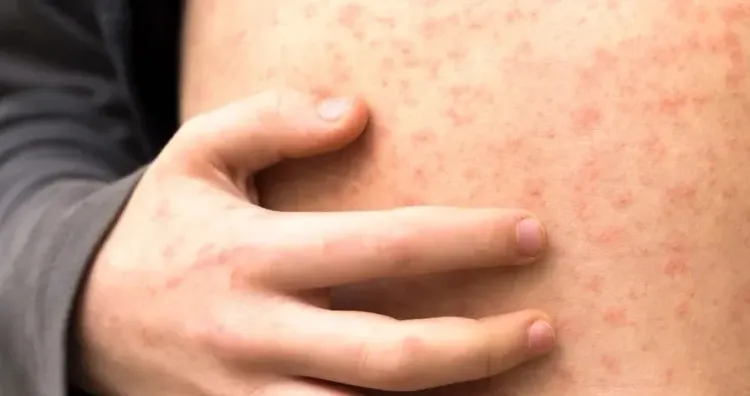Why Has a Second Child Died from Measles in Mongolia's Capital?

Synopsis
Key Takeaways
- Early recognition of measles symptoms is critical.
- Vaccination is the best prevention method.
- Measles poses a severe risk, especially to young children.
- Immediate medical care can save lives.
- Public awareness and education are essential.
Ulan Bator, May 30 (NationPress) - A second child in Ulan Bator, the capital of Mongolia, has tragically succumbed to measles amid an alarming rise in cases, as reported by the National Centre for Communicable Diseases (NCCD) on Friday. The infant, just nine months old, was admitted to the medical facility earlier this week in critical condition and lost the battle against the disease on Friday morning.
In light of this situation, the NCCD has urged parents to be vigilant about early symptoms of measles in their children and to seek immediate medical attention, as reported by the Xinhua news agency.
The World Health Organization states that measles is an extremely contagious viral infection spread through respiratory droplets and direct contact. The virus can easily propagate when an infected individual breathes, coughs, or sneezes, leading to severe complications and even fatalities.
Measles can affect anyone, but is particularly prevalent among children. The infection targets the respiratory system and spreads throughout the body. Common symptoms include a high fever, cough, runny nose, and a widespread rash.
Individuals who are non-immune—either unvaccinated or vaccinated without developing immunity—are at risk. Unvaccinated young children and pregnant women face the highest risk of severe complications.
Vaccination remains the most effective means of preventing measles infection and transmission. The vaccine is both safe and effective, enabling the body to combat the virus.
Before the measles vaccine was introduced in 1963 and became widely administered, significant epidemics occurred every two to three years, resulting in approximately 2.6 million deaths annually.
In 2023, it is estimated that 107,500 individuals, primarily children under five, lost their lives to measles, despite the availability of safe and affordable vaccines.
In the same year, around 74% of children received both doses of the measles vaccine, while about 83% of children worldwide received at least one dose by their first birthday.
The recommendation is to receive two doses of the vaccine to ensure full immunity and prevent outbreaks, as not all children achieve immunity from the initial dose.









